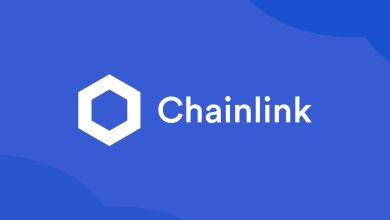Solana (SOL): The High-Speed Blockchain

- Understanding Solana’s high-speed blockchain technology
- The key features that make Solana stand out in the blockchain space
- How Solana achieves fast transaction speeds and low fees
- Exploring the scalability of Solana’s blockchain network
- The potential impact of Solana on the future of decentralized finance (DeFi)
- Comparing Solana’s performance to other popular blockchain platforms
Understanding Solana’s high-speed blockchain technology
Solana’s high-speed blockchain technology sets it apart from other cryptocurrencies in the market. This innovative blockchain platform utilizes a unique combination of technologies to achieve blazing-fast transaction speeds. By leveraging a proof-of-history (PoH) consensus mechanism, Solana is able to process thousands of transactions per second, making it one of the fastest blockchain networks available.
The key to Solana’s speed lies in its ability to parallelize transaction processing. Unlike traditional blockchains that process transactions sequentially, Solana’s architecture allows multiple transactions to be processed simultaneously. This parallel processing capability significantly reduces latency and improves overall network performance.
In addition to its speed, Solana also offers low transaction fees, making it an attractive option for users looking to transfer funds quickly and cost-effectively. With its high throughput and low fees, Solana is well-positioned to compete with other leading blockchain platforms in the market.
Overall, Solana’s high-speed blockchain technology is a game-changer in the world of cryptocurrencies. Its innovative approach to transaction processing sets it apart from the competition and positions it as a top contender in the rapidly evolving blockchain space. Whether you’re a developer looking to build decentralized applications or a user looking for fast and affordable transactions, Solana has something to offer for everyone.
The key features that make Solana stand out in the blockchain space
Solana is a high-speed blockchain that offers several key features setting it apart in the blockchain space. These features contribute to its growing popularity and adoption among developers and users alike.
- **Scalability**: Solana is known for its high throughput, capable of processing thousands of transactions per second. This scalability is achieved through its unique consensus mechanism, Proof of History, which helps in ordering transactions efficiently.
- **Low transaction costs**: Another standout feature of Solana is its low transaction fees. Users can transact on the network without worrying about high fees, making it an attractive option for decentralized applications.
- **Fast confirmation times**: Solana’s high-speed performance allows for fast confirmation times, ensuring that transactions are processed quickly and efficiently. This is crucial for applications requiring real-time interactions.
- **Ecosystem support**: Solana has a growing ecosystem of projects and developers building on its platform. This support helps in expanding the use cases of Solana and driving innovation within the blockchain space.
- **Security**: Despite its speed, Solana does not compromise on security. It utilizes robust cryptographic techniques to ensure the integrity and confidentiality of transactions on the network.
Overall, Solana’s combination of scalability, low transaction costs, fast confirmation times, ecosystem support, and security features make it a compelling option for those looking to leverage the benefits of a high-speed blockchain.
How Solana achieves fast transaction speeds and low fees
Solana achieves fast transaction speeds and low fees through its innovative blockchain technology. One key factor is its unique consensus mechanism called Proof of History (PoH). PoH timestamps transactions before they are added to the blockchain, allowing for parallel transaction processing and significantly reducing latency. This efficient method enables Solana to handle thousands of transactions per second, making it one of the fastest blockchains in the industry.
Additionally, Solana utilizes a technology called Tower BFT (Byzantine Fault Tolerance) to enhance network security and prevent double-spending. This consensus algorithm ensures that transactions are final and irreversible once they are confirmed, providing users with a high level of trust and reliability. By combining PoH with Tower BFT, Solana is able to achieve fast confirmation times and maintain low transaction fees.
Furthermore, Solana’s architecture is designed to scale horizontally, meaning that as the network grows, it can easily accommodate increased demand without sacrificing performance. This scalability feature allows Solana to remain efficient even as more users and applications join the network, ensuring that transaction speeds remain fast and fees stay low. Overall, Solana’s innovative technology and design make it a top choice for users looking for a high-speed blockchain with low costs.
Exploring the scalability of Solana’s blockchain network
Solana’s blockchain network is renowned for its high-speed transactions and low fees, making it an attractive option for developers and users alike. One of the key factors contributing to Solana’s efficiency is its scalability. The network is designed to handle a high volume of transactions without compromising speed or security.
Solana achieves scalability through its unique consensus mechanism, called Proof of History (PoH). This mechanism allows the network to process transactions in parallel, significantly increasing throughput. As a result, Solana can handle thousands of transactions per second, making it one of the fastest blockchain networks in the industry.
In addition to PoH, Solana also utilizes a technology called Tower BFT (Byzantine Fault Tolerance) to further enhance its scalability. Tower BFT helps the network reach consensus quickly and efficiently, ensuring that transactions are processed in a timely manner.
Overall, Solana’s scalability is a key feature that sets it apart from other blockchain networks. By being able to handle a high volume of transactions at lightning speed, Solana is well-positioned to meet the demands of decentralized applications and projects of all sizes.
The potential impact of Solana on the future of decentralized finance (DeFi)
The potential impact of Solana on the future of decentralized finance (DeFi) is significant. As a high-speed blockchain, Solana offers fast transaction speeds and low fees, making it an attractive option for DeFi applications. With its scalability and high throughput, Solana has the potential to revolutionize the DeFi space by enabling more efficient and cost-effective transactions.
One of the key advantages of Solana is its ability to handle thousands of transactions per second, far surpassing many other blockchains. This speed and efficiency can help to reduce congestion on the network and lower transaction costs, making DeFi more accessible to a wider range of users. Additionally, Solana’s low fees make it an appealing option for developers looking to build decentralized applications on a budget.
Furthermore, Solana’s support for smart contracts and decentralized applications (dApps) opens up a world of possibilities for DeFi innovation. Developers can leverage Solana’s high-speed infrastructure to create new and innovative financial products, such as decentralized exchanges, lending platforms, and more. This could lead to a wave of innovation in the DeFi space, driving growth and adoption across the industry.
In conclusion, Solana has the potential to have a transformative impact on the future of decentralized finance. Its high-speed blockchain, scalability, and low fees make it an attractive option for developers and users alike. As the DeFi space continues to evolve, Solana is well-positioned to play a key role in shaping the future of finance.
Comparing Solana’s performance to other popular blockchain platforms
When comparing Solana’s performance to other popular blockchain platforms, it is evident that Solana stands out for its high-speed transactions and scalability. Unlike some other blockchains that struggle with slow transaction speeds and high fees, Solana offers lightning-fast transaction times and low costs, making it an attractive option for users looking for efficiency and cost-effectiveness.
One of the key advantages of Solana is its ability to handle a high volume of transactions per second, far surpassing many other blockchain platforms. This high throughput is made possible by Solana’s unique consensus mechanism, which allows for parallel transaction processing, resulting in faster confirmation times and overall improved performance.
In addition to its speed, Solana also boasts strong security features, ensuring that transactions are secure and reliable. This combination of speed and security makes Solana a competitive option for a wide range of applications, from decentralized finance to gaming and beyond.
Overall, when compared to other popular blockchain platforms, Solana’s high-speed performance and scalability set it apart as a top contender in the blockchain space. Its innovative technology and commitment to efficiency make it a promising choice for developers and users alike.



